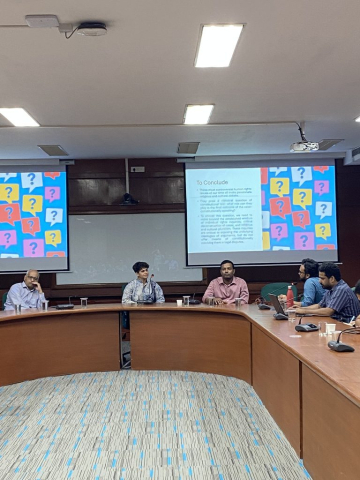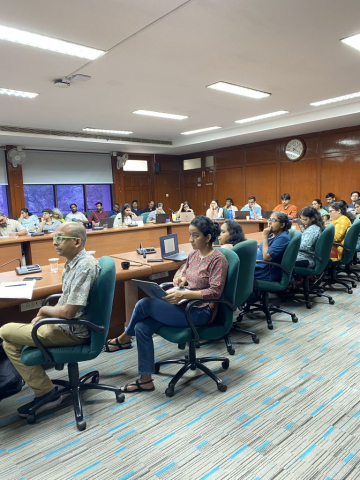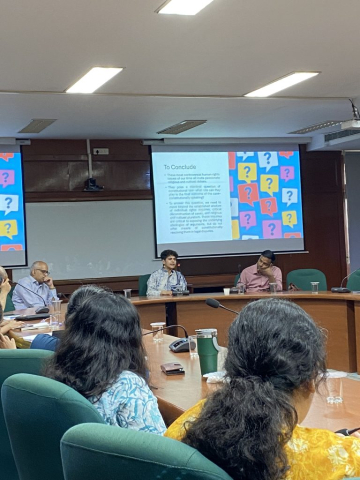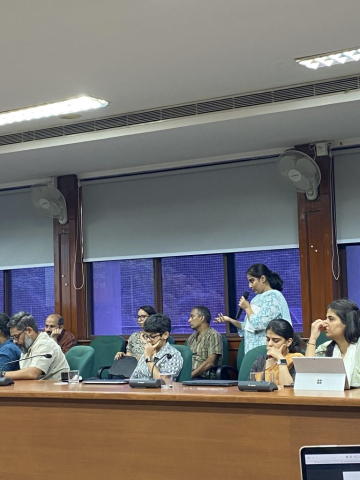NLS Faculty Seminar | Religion, Culture, and Human Rights in India: With God as our Witness
Conference Hall, Ground Floor, Training Centre
Wednesday, April 2, 2025, 4:00 pm
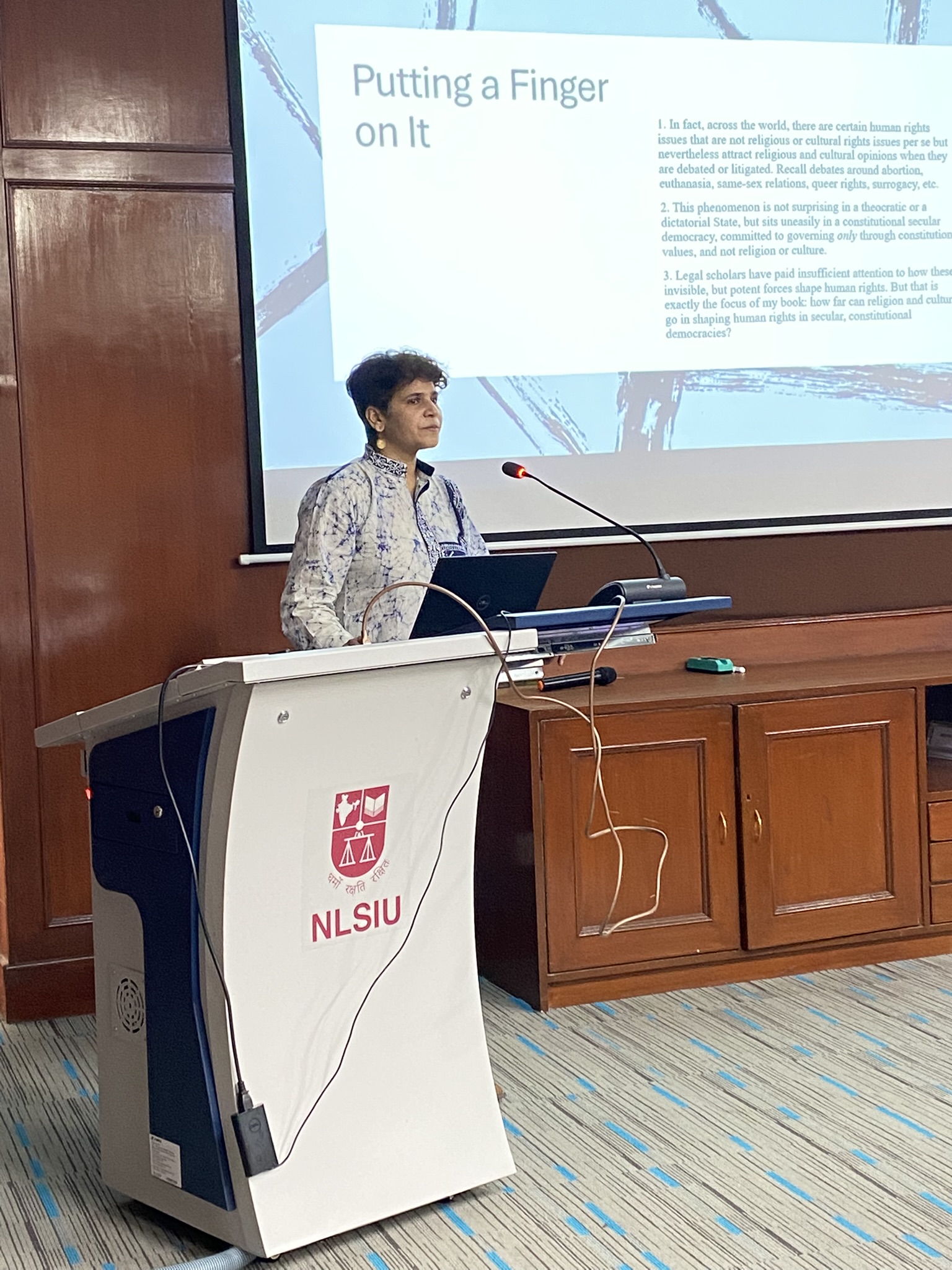 In this week’s faculty seminar, Dr. Surabhi Shukla, Lecturer at the School of Law, University of Sheffield, and an alumna of the NLSIU (2011). Surabhi will be presenting her upcoming book titled “With God as our Witness.” The seminar will be held on April 2, 2025, at 4 pm, in the Ground Floor Conference Hall at NLSIU’s Training Centre.
In this week’s faculty seminar, Dr. Surabhi Shukla, Lecturer at the School of Law, University of Sheffield, and an alumna of the NLSIU (2011). Surabhi will be presenting her upcoming book titled “With God as our Witness.” The seminar will be held on April 2, 2025, at 4 pm, in the Ground Floor Conference Hall at NLSIU’s Training Centre.
Abstract
In secular, constitutional democracies, religion and culture are assumed to be of legal importance only for deciding the scope of religious and cultural freedom, maintaining communal harmony, and determining the scope of minority protection laws. However, across jurisdictions, courts have been influenced by religion and culture in determining other human rights as well. This phenomenon is especially observed in, but is not restricted to, gender and sexuality cases: abortion, sexual orientation and gender identity, marital rape, sex work, euthanasia, bar dancing, etc.
This book examines the limits of religious and cultural influence on fundamental rights questions under secular and liberal constitutions and proposes a judicial framework to determine the same. Using intensity sampling, I select the population of cases (31 in number) pertaining to the abovementioned themes. I then perform a systematic content analysis to extract religious and cultural claims and examine their various attributes. I find that, even though the law has mandated no role for them, such claims determine the outcome in 29% of the cases; 78.5% of those claims are judicially noticed, i.e., admitted without proof. This makes it imperative to investigate the institutional limits upon the judiciary when dealing with religious and cultural claims. The judicial framework that I propose has three pillars:
1. A theory of constitutional interpretation which discusses constitutional restrictions on the judge when considering religious and cultural arguments in fundamental rights cases;
2. A theory of judicial notice to determine when such claims can be admitted without proof; and
3. A theory of secularism and public reason which argues that once a religious or cultural claim has been admitted, it should be given weight in the final decision only if it matches defensible conceptions of constitutional values.
About the Author
Dr. Surabhi Shukla is Lecturer at the School of Law, University of Sheffield, and an alumna of the NLSIU (2011). Surabhi is also Deputy Director of Employability and Enrichment Activities (Legal Tech) at the University. Read her complete profile here.
Reflections from the Author
“The most controversial human rights issues of our time, like abortion and surrogacy, LGBTQ + rights, sex work, euthanasia, etc., all invite passionate religious and cultural debate posing a classic question of constitutional law — to what extent can religious and cultural views shape human rights in secular democracies? For example, can the religious and cultural sentiments of the general populace determine whether there is a right to abortion in a country? This is the question that I answer in my upcoming book ‘With God as our Witness.’ Having learnt how to read constitutional law at NLSIU, it was a special pleasure and privilege to debate this question with a room full of engaged colleagues and teachers turned colleagues. The feedback is extremely valuable in finalising this work in progress. Hoping to be back again when the book is published in 2026!”


